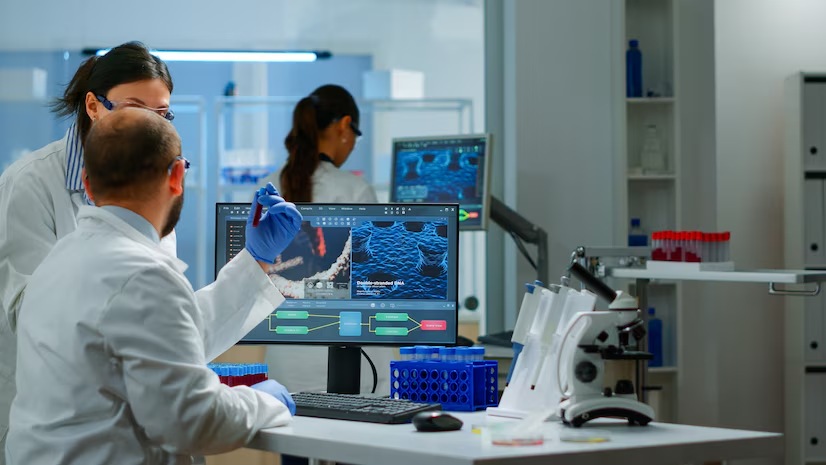Lotus299, Goldenexch, Msdexch: Artificial Intelligence (AI) has revolutionized the field of healthcare by offering advanced tools for accurate diagnosis. With the ability to analyze vast amounts of medical data in a fraction of the time it would take a human, AI systems can detect patterns and anomalies that may go unnoticed by even the most skilled healthcare professionals. By harnessing the power of AI, healthcare providers can make quicker and more precise diagnoses, leading to faster treatment and improved outcomes for patients.
Moreover, AI in healthcare enables the implementation of predictive analytics, allowing for the early identification of potential health issues before they escalate into more serious conditions. This proactive approach not only saves lives but also reduces healthcare costs by preventing the need for extensive treatments or hospitalizations. By integrating AI technologies into the diagnostic process, healthcare providers can offer more personalized and effective care to their patients, ultimately transforming the way diseases are detected and managed.
• AI systems can analyze vast amounts of medical data quickly and accurately
• Detect patterns and anomalies that may be missed by human healthcare professionals
• Quicker and more precise diagnoses lead to faster treatment and improved outcomes for patients
• Implementation of predictive analytics allows for early identification of potential health issues
• Proactive approach saves lives, reduces healthcare costs, and prevents extensive treatments or hospitalizations
• Integration of AI technologies into the diagnostic process offers more personalized and effective care to patients.
Enhancing Treatment Plans with AI Technology
Healthcare providers are increasingly turning to AI technology to enhance the development of individualized treatment plans for their patients. By utilizing algorithms and machine learning, AI can analyze vast amounts of patient data to identify patterns and recommend tailored treatment strategies. This approach allows for a more personalized and precise course of action, potentially leading to improved patient outcomes and overall health.
Furthermore, AI technologies can assist healthcare professionals in predicting how a patient may respond to specific treatments, optimizing the decision-making process. By processing data such as genetic information, medical history, and even lifestyle factors, AI can offer valuable insights into the effectiveness of various treatment options. Ultimately, the integration of AI into treatment planning has the potential to revolutionize the way healthcare is delivered, offering more efficient and individualized care to patients.
The Impact of AI on Early Disease Detection
Aldoexch, Aaonline777, Aaonline247: AI technology has revolutionized the field of early disease detection by offering advanced algorithms to analyze large datasets of patient information. By swiftly identifying patterns and anomalies in medical imaging, such as X-rays and MRIs, AI assists in the prompt detection of diseases like cancer and heart conditions.
Moreover, AI plays a crucial role in predicting potential health risks in individuals based on their genetic makeup and lifestyle factors. By processing vast amounts of data, AI algorithms can generate personalized risk assessments, allowing for preventive measures to be implemented early on to mitigate the development of certain diseases.
How can AI technology improve early disease detection in healthcare?
AI technology can analyze vast amounts of medical data quickly and accurately, allowing for early detection of subtle changes that may indicate the presence of a disease.
Can AI assist in creating more personalized treatment plans for patients?
Yes, AI can analyze a patient’s medical history, genetic information, and other data to recommend personalized treatment plans that are tailored to the individual’s specific needs.
Is AI replacing human doctors in the diagnosis and treatment of diseases?
No, AI is meant to assist healthcare professionals by providing them with valuable insights and recommendations based on data analysis. The final diagnosis and treatment decisions are still made by doctors.
What are some examples of AI applications in early disease detection?
AI algorithms have been used to analyze medical imaging scans (such as X-rays and MRIs) for early signs of diseases like cancer, as well as to monitor patient data in real-time to detect subtle changes that may indicate a health issue.
How does AI contribute to improving the overall efficiency of healthcare systems?
By streamlining data analysis, assisting in diagnosis, and providing personalized treatment recommendations, AI can help healthcare providers make more informed decisions quickly, leading to improved patient outcomes and reduced healthcare costs.
Additional:
- Apple Stock Price On Etoro
- Susanne Klatten – Biography, Lifestyle, Networth
- Iris Fontbona & Family – Biography, Lifestyle, Networth
- Which Of The Following Is Not An Advantage Of Owning A Car?


